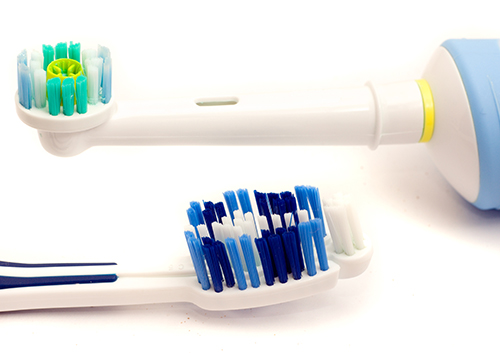How do OTC whitening treatments compare to in-office whitening?
January 13th, 2021

If you are unhappy with the color of your teeth, teeth whitening may be an excellent choice for you. Many patients of Dr. Bill Whitley suffer from darkened teeth due to the natural aging process, regular consumption of coffee or tea, or nicotine staining from cigarettes.
Some people may have darkened teeth due to long-term use of medication. Certain medication-related stains on the teeth cannot be lightened, but virtually every other type of teeth stains can be effectively lightened using either professional dental whitening or at-home whitening.
While both types of whitening have benefits, at-home kits are less expensive and less effective overall. Professional teeth whitening is a highly effective option, but it requires a bit more of an investment. Here is the basic info on each type of whitening.
At-Home Whitening
At-home whitening is done in a number of different ways today. Some of the most popular options include:
- Whitening strips that are applied to teeth and then removed after a specified period. These will typically be used once a day for at least a week.
- Whitening gels or pastes that are placed in a one-size-fits-all plastic tray. These trays are worn, retainer style, for a set period of time once a day.
- Whitening toothpaste, which is used daily, and whitening mouthwashes are also available today. These products require constant use to realize results.
In-Office Whitening
In-office whitening is the fastest way to achieve whiter teeth. If you want an almost immediate difference in the color of your teeth and their overall appearance, this is probably the option for you.
Dr. Bill Whitley will typically apply the whitening formula directly to your teeth. Following the application, we will have you relax in our office between half an hour and an hour.
Some office-whitening formulas are strengthened with the use of heat, specialized lighting, or laser application. Patients will usually notice whitening results after only one application, but it usually takes at least a few appointments at Whitley Family Dental to notice a truly dramatic change in tooth color.


